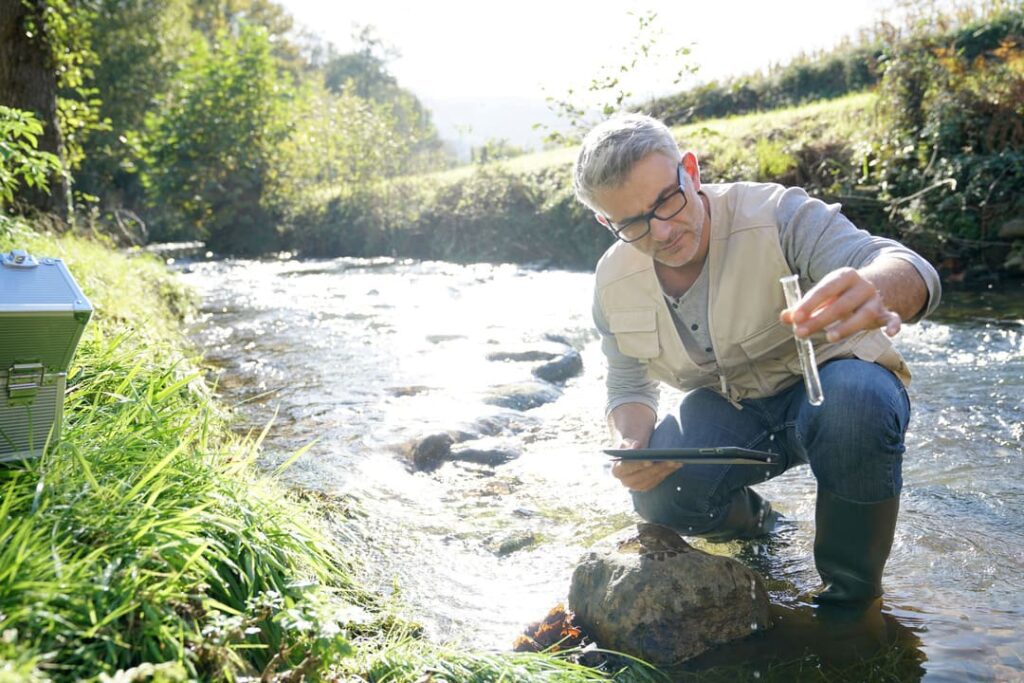Looking for Expert-Level VA Claim Answers?📱Call Us Now! 737-295-2226
VA Camp Lejeune Presumptives
Did you know that as many as one million people may have been exposed to water contamination from a U.S. military base, Camp Lejeune, between 1953 and 1987? Eight presumptive conditions are now linked to that water contamination.
Camp Lejeune, a military base in Jacksonville, NC, boasts a rich history. It hosts thousands active-duty military families, civilians, and retired people. In WWII, troops trained on amphibious missions from this base before moving to the Pacific Islands. Throughout the years, Camp Lejeune has trained Marines to fight in each major conflict in the USA and others for peacekeeping operations on the ground in Lebanon and tactical recovery.
Only recently was Camp Lejeune’s darker history exposed. According to the CDC’s Agency for Toxic Substance Database and Disease Registry, Camp Lejeune was contaminated from 1950 to 1987, when all significantly contaminated waters were closed.
To break it down for you, those affected by the water contamination can file for disability benefits. We want to make sure you have the VA rating you deserve. As insiders, we’ll guide you through more about the conditions and how to file for benefits in this blog.

- VA Camp Lejeune Presumptives
- Camp Lejeune Water Contamination
- What Health Problems Does Contaminated Drinking Water Cause?
- What Are the Symptoms of Neurobehavioral Effects?
- The Presumptive Service Connection
- The 8 Diseases Associated With Camp Lejeune Water Contamination
- Other Health Conditions Available for VA Health Care
- VA Disability Benefits for Veterans and Family Members Exposed to Camp Lejeune Toxic Water
- VA Compensation for Camp Lejeune Water Contamination – Disability Compensation Eligibility
- VA Health Care for Camp Lejeune Veterans
- VA Compensation for Camp Lejeune Water Contamination- Get the VA Rating You Deserve
- About the Author
You DESERVE a HIGHER VA rating.
Take advantage of a VA Claim Discovery Call with an experienced Team Member. Learn what you’ve been missing so you can FINALLY get the disability rating and compensation you’ve earned for your service.
Camp Lejeune Water Contamination
The soldiers of Camp Lejeune and their families were subjected to toxic substances in both the drinking water and bathing water from August 1, 1953, through December 31, 1987. The chemicals had been allegedly brought into Camp Lejeune by nearby water cleaner ABC One-Hour Cleaners, which remained unfiltered at the two water treatment facilities fed into the camp. The contamination was discovered in several wells across the base in 1982 when users first started using them almost a year earlier.
Based on an assessment by the ASTDR, the VA released a report in 2017 identifying eight presumptive conditions linked to Camp Lejeune water contamination. The contaminants were volatile organic compounds (VOCs), including trichloroethylene (TCE), tetrachloroethylene (PCE), vinyl chloride (VC), and benzene. These chemicals can cause various health problems, ranging from skin irritation to cancer.
While the ATSDR report does not explicitly state that these conditions are caused by exposure to VOCs at Camp Lejeune, it does note that there is a “probable” link and increased risk between the two. If you or someone you know has been affected by any of the conditions listed in this article, you may be eligible for compensation from the Department of Veterans Affairs.
What Health Problems Does Contaminated Drinking Water Cause?
Contaminated water can cause several different health problems in both humans and animals. One of the most common problems is gastroenteritis, an infection of the stomach and intestines.
Symptoms include diarrhea, vomiting, and cramping. In severe cases, gastroenteritis can lead to dehydration and even death. Contaminated water can also cause skin infections, such as dermatitis or impetigo. These infections are usually much less severe than gastroenteritis, but they can still be quite uncomfortable.
Contaminated water can also transmit diseases such as cholera, dysentery, and hepatitis A. These diseases can cause serious illness and even death in humans, so it is essential to be aware of the risks associated with contaminated water.
What Are the Symptoms of Neurobehavioral Effects?
Neurobehavioral effects are cognitive functioning and behavior changes that can arise from exposure to environmental chemicals or other toxic substances.
These symptoms can include neurobehavioral effects such as fatigue, lack of coordination, sensory disturbances, confusion, depression, tension, trouble concentrating, and headaches. Alterations in neurobehavioral tests can include deficits in attention, reaction time, visuomotor coordination, motor function, digit symbol, and contrast sensitivity. Lastly, certain neuropsychological disorders can result such as learning or behavioral disorders.
Because there are so many different types of neurobehavioral effects, it is critical to seek medical attention as soon as possible if you notice any strange changes in your mental or physical state.
If you experience symptoms like confusion, dizziness, or numbness in your limbs, speak with a healthcare provider right away. By getting the proper care at the right time, you can minimize the potential impact of these distressing and harmful symptoms on your life.
The Presumptive Service Connection
Presumptive service connection means that the VA formally acknowledges that military service at Camp Lejeune during qualifying years is associated with the 8 VA Camp Lejeune presumptives on the list.
When filing for a disability claim, the VA requires medical records and medical evidence demonstrating that veterans’ conditions are linked to military service. However, the presumptive conditions require no additional documentation when filing for them.

The 8 Diseases Associated With Camp Lejeune Water Contamination
The following eight presumptive Conditions Linked to Camp Lejeune Water Contamination are available for disability compensation.
Adult Leukemia
Leukemia is a cancer of the blood cells. Typically, the bone marrow (the spongy tissue inside bones) makes blood cells. White blood cells fight infection, red blood cells carry oxygen to the body’s tissues, and platelets help the blood clot. In leukemia, the bone marrow creates aberrant white blood cells. These cells push out the proper blood cells, making it impossible for the circulation to function correctly.
There are four main classifications of leukemia, characterized by how fast they grow and which type of blood cell is affected. Acute leukemia develops quickly and affects immature blood cells. Chronic leukemia grows more slowly and affects mature blood cells. Lymphocytic Leukemia affects lymphocytes (a type of white blood cell), while myeloid leukemia affects myelocytes (a different type of white blood cell).
Adult leukemia is most common in adults aged 55-64 years old but can occur at any age. The exact cause of adult leukemia is unknown, but certain risk factors have been identified. These include exposure to certain chemicals, previous treatment with certain drugs (such as chemotherapy), and radiation exposure.
Symptoms of adult leukemia may include fatigue, pale skin, and easy bruising.
Aplastic Anemia and Other Myelodysplastic Syndromes
Aplastic anemia is a rare blood disorder when the bone marrow stops producing enough blood cells.
Aplastic anemia can be caused by cancer, certain medications, or exposure to chemicals or radiation.
Symptoms of aplastic anemia include fatigue, shortness of breath, and easy bruising or bleeding. Treatment for aplastic anemia can consist of blood transfusions, bone marrow transplants, or immunosuppressive therapy.
Myelodysplastic syndromes are a group of conditions that affect the bone marrow and blood. Myelodysplastic syndromes can be caused by cancer, certain medications, or exposure to chemicals or radiation.
Symptoms of myelodysplastic syndromes vary depending on the type of syndrome but may include fatigue, shortness of breath, and easy bruising or bleeding. Treatment for myelodysplastic syndromes may include blood transfusions, bone marrow transplants, or immunosuppressive therapy.
Bladder Cancer
Bladder cancer is a disease in which malignant (cancer) cells form in the tissues of the bladder. Some of the most common risk factors include age, gender, smoking status, and exposure to environmental toxins.
Older individuals are at greater risk for bladder cancer, as their bodies have had more time to accumulate mutations in their cells.
Certain chemicals found in specific workplace environments have increased the risk of developing this disease.
While there is no definitive cure for bladder cancer, early detection and treatment can help to improve chances of recovery and reduce symptoms. Through lifestyle changes and regular screening tests, individuals with a high risk of developing bladder cancer can take proactive steps to manage their health.
Kidney Cancer
Kidney cancer can develop in either of the two kidneys, but it most often affects the left kidney. Kidney cancer usually affects adults over the age of 50, and it is more common in men than in women.
Symptoms of kidney cancer include back pain, weight loss, and blood in the urine. If left untreated, kidney cancer can spread to other parts of the body and be fatal. Treatment for kidney cancer typically involves surgery to remove the affected kidney and chemotherapy and radiation therapy.
Liver Cancer
Liver cancer is one of the most aggressive and challenging to treat. The liver is a vital organ that performs many critical functions, including filtering toxins from the blood and producing bile for digestion.
Cancerous cells can quickly spread through the liver, causing extensive damage.
Symptoms of liver cancer include weight loss, appetite loss, fatigue, and abdominal pain. However, due to the aggressive nature of the disease, liver cancer is often fatal. Treatment options include surgery, chemotherapy, and targeted therapy.
Multiple Myeloma
Multiple myeloma is a type of cancer that affects the plasma cells in our bodies, causing them to grow out of control and crowd out healthy blood cells. It can have severe consequences for the individual’s overall health, leading to symptoms such as fatigue, muscle weakness, anemia, and frequent infections.
The exact cause of multiple myeloma isn’t known, but some risk factors increase a person’s likelihood of developing the disease. These include exposure to certain toxins or radiation, having a family history of multiple myeloma, and being over 65.
Multiple myeloma doesn’t currently have a cure, but some treatments can help manage symptoms and improve quality of life. These may include chemotherapy or immunotherapy drugs and a bone marrow transplant in some cases.
With proper treatment and care, most patients with multiple myeloma can live happy and healthy lives well into adulthood.
Non-Hodgkin’s Lymphoma
Non-Hodgkin’s lymphoma (NHL) is a blood cancer that affects the lymphatic system.
Symptoms of NHL can vary widely depending on the location and aggressiveness of the tumor, but common symptoms include swollen lymph nodes, weight loss, night sweats, and fatigue.
While there is no cure for NHL, treatment options can help slow its progression and alleviate discomfort and other symptoms. These treatments typically involve chemotherapy or radiation, either alone or with other therapies like stem cell transplants or immunotherapy.
Successfully managing this disease involves early diagnosis and a collaborative approach between patients and healthcare providers. With the right care and support, however, many people with NHL can go on to live long and full lives after their diagnosis.
Parkinson’s Disease
Parkinson’s disease is a neurological disorder that affects the sufferer’s movement.
Parkinson’s disease is one of the most common neurological disorders. Common symptoms of Parkinson’s disease are tremors, rigidity, and slow movements. There is currently no cure for Parkinson’s disease, but treatments can help to improve symptoms and quality of life.
In some cases, surgery may be used to implant deep brain stimulation devices that can help to control movement. The development of new therapies is ongoing, and researchers hope that a better understanding of the condition will lead to more effective treatments in the future.

Other Health Conditions Available for VA Health Care
Veterans diagnosed with the following health conditions or diseases have access to VA health care but are not presumptively service-connected for disability benefits.
- Scleroderma: an autoimmune disease that causes skin hardening and scarring. It can also affect other organs, such as the kidneys, heart, and lungs.
- Breast cancer: a type of cancer that starts in the cells of the breasts. It can spread to other parts of the body.
- Lung cancer: a type of cancer that develops in the lungs. You can treat it with surgery, chemotherapy, and other forms of medical treatment.
- Esophageal cancer: a type of cancer that develops in the esophagus, the tube connecting the mouth to the stomach. Symptoms may include difficulty swallowing and unintentional weight loss.
- Neurobehavioral effects: are changes in behavior and brain function that can occur due to exposure to toxic chemicals or other environmental factors, such as traumatic brain injury.
- Renal toxicity damages the kidneys caused by exposure to certain toxins or medications. This condition can lead to kidney failure and other serious health complications.
- Hepatic steatosis: a condition characterized by the build-up of fat in the liver. It can be caused by obesity, alcoholism, and other factors. This condition can lead to liver damage and other health problems.
- Female Intertility: the inability to conceive after one year (or longer) of unprotected sex. It can be caused by a number of factors, including exposure to certain toxins.
- Miscarriage: the loss of a pregnancy before 20 weeks. Exposure to toxins can also be linked to miscarriage.
VA Disability Benefits for Veterans and Family Members Exposed to Camp Lejeune Toxic Water
The Camp Lejeune Families Act aims to protect American veterans in Camp Lejeune families.
The Veterans and Relatives Act provides benefits to veterans and family members serving at Camp Lejeune during active service for at least 30 days between August 1, 1953, and December 31, 1987. It also offers medical assistance for eligible relatives who live on military bases.
VA Compensation for Camp Lejeune Water Contamination – Disability Compensation Eligibility
To be eligible, you must meet the following criteria :
- You served at Camp Lejeune or MCAS New River for at least 30 cumulative days from August 1953 through December 1987, while on active duty, or in the National Guard or Reserves, and;
- Medical records state that you have 1 or more of the 8 illnesses on the presumptive conditions list.
Those whose medical conditions are suspected to be from contaminated water must apply for Camp Lejeune Veterans Benefits. You can file a claim by following this link.
VA Health Care for Camp Lejeune Veterans
VA Health Services offers paid health care expenses and services for veterans based on their Service Status. If a veteran has any of the conditions stated above/previously, health care is available to them.
Healthcare reimbursement is also provided to families living with a sponsor or children born to families who have lived there. A veteran must meet certain conditions depending upon their condition.
VA Compensation for Camp Lejeune Water Contamination- Get the VA Rating You Deserve
If you have served at Camp Lejeune and have developed any chronic health condition, it is crucial to speak with your doctor about whether or not you may have been exposed to toxic chemicals while stationed there. You may be eligible for benefits and compensation from the VA if it is determined that your illness was caused by exposure to contaminants at Camp Lejeune.

NEED MORE ASSISTANCE?
Most veterans are underrated for their disabilities and therefore not getting the compensation they’re due. At VA Claims Insider, we help you understand and take control of the claims process, so you can get the rating and compensation you’re owed by law.
Our process takes the guesswork out of filing a VA disability claim and supports you every step of the way in building a fully-developed claim (FDC)—so you can increase your rating fast!
If you’ve filed your VA disability claim and have been denied or have received a low rating—or you’re unsure how to get started—reach out to us! Take advantage of a VA Claim Discovery Call. Learn what you’ve been missing—so you can FINALLY get the disability rating and compensation you deserve!
We’ve supported more than 25,000 veterans to win their claims and increase their ratings. NOW IT’S YOUR TURN.
About the Author

Brian Reese
Brian Reese is a world-renowned VA disability benefits expert and the #1 bestselling author of VA Claim Secrets and You Deserve It. Motivated by his own frustration with the VA claim process, Brian founded VA Claims Insider to help disabled veterans secure their VA disability compensation faster, regardless of their past struggles with the VA. Since 2013, he has positively impacted the lives of over 10 million military, veterans, and their families.
A former active-duty Air Force officer, Brian has extensive experience leading diverse teams in challenging international environments, including a combat tour in Afghanistan in 2011 supporting Operation ENDURING FREEDOM.
Brian is a Distinguished Graduate of Management from the United States Air Force Academy and earned his MBA from Oklahoma State University’s Spears School of Business, where he was a National Honor Scholar, ranking in the top 1% of his class.




